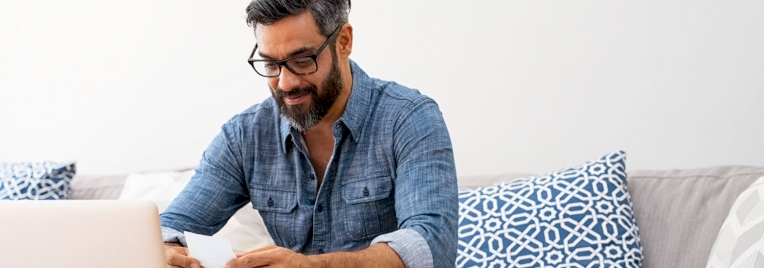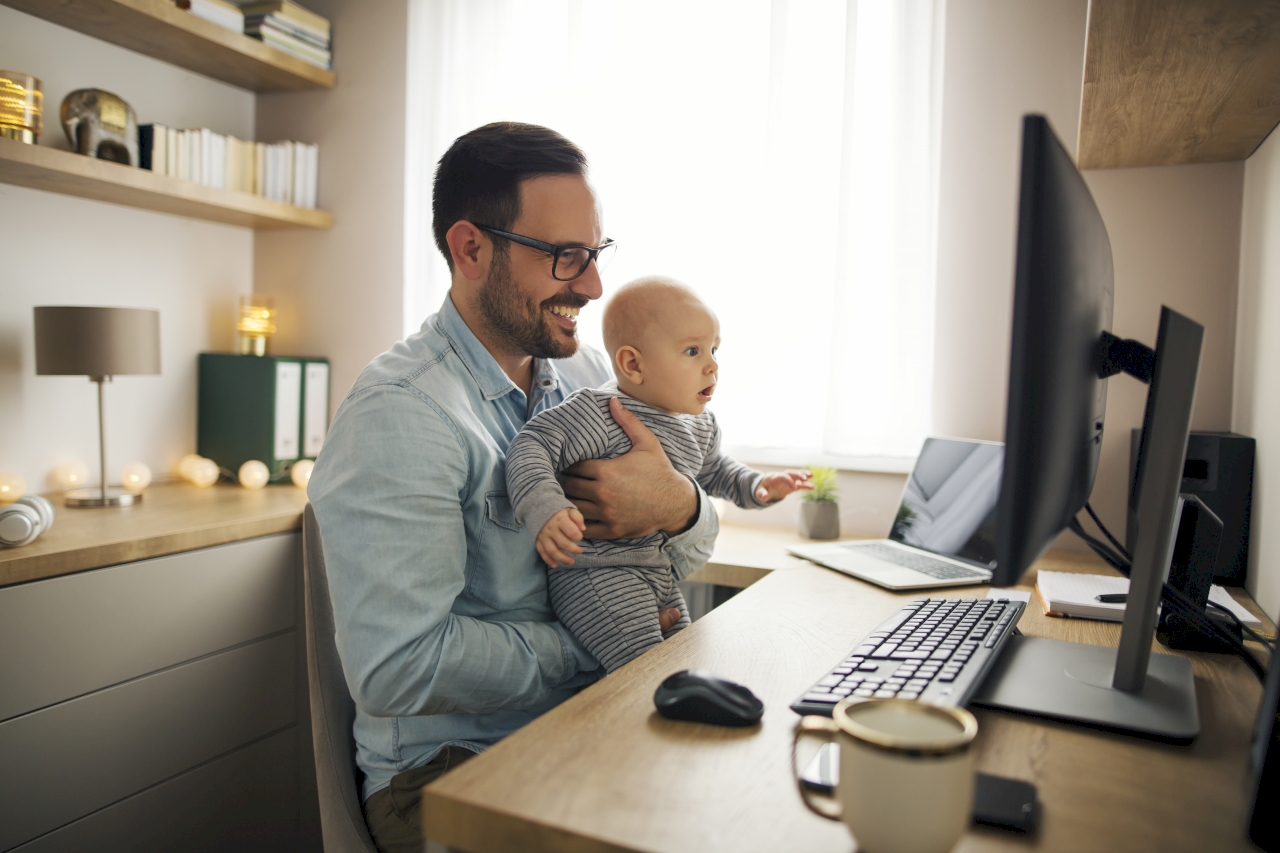
Find out more
Five myths about work in the home office
The Corona pandemic has changed the way we look at work at home. For example, the assessment of productivity. While before Corona the majority of people were still convinced that working at home was less efficient, it is now often heard that working at home is actually more productive than working in the office. We took a look at this and other frequently expressed opinions about the home office.
Desk
1. Work in the home office is more efficient than in the office

Swivel chair

In the forsa survey on home office work commissioned by IBA, many employees reported in April 2020 that they can work more concentrated at home than in the office. Project coordination via web conferencing also works very well, apart from a few technical problems. Nevertheless, 80% of all employees missed their colleagues. Many complained that creative ideas, in particular, fell by the wayside. Yahoo's HR manager Jackie Reses had already come to the same conclusion in 2013. At that time, she forbade all employees of the tech company to work in the home office. Her reasoning: "The best decisions are often made in the corridor or in the cafeteria.

IT equipment
2. The home office combines private and professional life

Light

It seems logical: Parents who are at home are not far away from the children's room and can take care of household, education and work at the same time. All those who had to combine the two in spring 2020 can report that this is not so easy. In our forsa survey, parents of children under the age of 11 were far less enthusiastic about the idea than their colleagues with or without older children. But even for those who do not have children, the home office seems to have its pitfalls. A 2017 study by the International Labour Organization (ILO) concluded that due to the overlap between work and leisure time, home workers have a harder time in the evening than their colleagues who work in the office during the day.

3. Home office is especially suitable for millennials


We all know the cliché of young urban nomads who prefer to sit in front of their laptops at home, in a café or in the park. But is that really the case? It is a fact that the Millenials before Corona worked in their home office much less often than their older colleagues. Maybe that's just as well. If you can believe a 2014 American study by Stanford University, people who work regularly in the home office are paid less than their colleagues in the office on average. Another reason why younger employees in particular should not work exclusively at home is named in a study conducted in April 2020 by the U.S. office of the Gensler Research Institute. According to the study, 50 % of the millennials had problems fading out distractions in the home environment during corona-related work in the home office. 37 % found it difficult to separate work and private life. Older employees complained about such problems far less often.

4. The home office will replace the classic office


At least for the foreseeable future, this is unlikely to happen. As we saw at the beginning, many work processes need direct personal interaction. In any case, those employees who want to work (almost) exclusively from home are in the minority. Only a few can imagine not coming into the office from time to time. However, it is also true that the majority of employees would like to work at home more often in the future than they did in the past - and would like to decide for themselves when and how often they do so. Whether this works or whether agreements are necessary remains to be seen.
Sources:
- forsa survey commissioned by IBA among 1,000 employees working in their home office in spring 2020, April 2020
- http://www.ilo.org/global/publications/books/WCMS_544138/lang--de/index.htm
- https://drive.google.com/file/d/1DPhkrgydBA7Xt9ZHHQv8ZcpBSbzgfy-F/view
- https://www.gensler.com/research-insight/workplace-surveys/us-work-from-home-survey/2020

